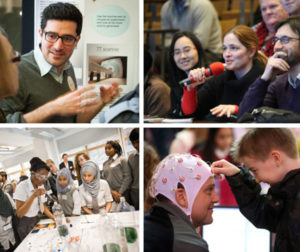Public Engagement Masterclass
8–10 July 2019
Wellcome Genome Campus, UK
This course will empower researchers to develop a personalised and proactive public engagement plan
Summary
Our Public Engagement Masterclass – now in its fourth year – supports researchers from all disciplines who aspire to be research leaders in their fields and establish a reputation for quality, embedded public engagement in the context of their research portfolio. This course is organised in associaion with the WGC Public Engagement team.
Supported by all the major UK funders of research and facilitated by leading UK and European engagement specialists, the course will empower researchers through a mix of inspirational case studies, practical sessions and bespoke support to develop a personalised and proactive public engagement plan.
The programme will cover the context for public engagement with research, in the UK and further across Europe, and will provide knowledge and tools required to make tangible interventions in local and institutional settings. A major focus will be on methods and enablers to bring high-quality public engagement to the heart of a successful research leader.
The residential nature of the course, enriched by a family of course mentors, provides flexible and ‘offline’ opportunities to talk on specific challenges and reflect on personal contexts and plans. Delegates will come from a diverse range of disciplines and European settings, making for rich networking and experience sharing.
The course is delivered in a participatory style, but allows for adequate reflection, socialising and recharge time. Our aim is to be exhilarating but not exhausting, and workshop sessions will be well interspersed with social and free time, giving a chance to explore the beautiful grounds of the Wellcome Genome Campus.
Programme
The course will start at 12 noon on Monday 8 July and close at 15.00 on Wednesday 10 July 2019.
Guided by an overarching theme of Public engagement in Changing Times the programme will include:
- Public engagement with research in context, across the UK and European settings
- Leadership in public engagement
- Quality in public engagement
- Audiences and their expectations
- The power of partnership
- Evaluation
- Funding and the role of PE in grant making
- Working with education audiences
- Exploiting links with the priorities of the city or region
- Collaboration with the third sector – including cultural bodies and museums
- Ambassador for the embedding of PE within a research group, project or field
- Interventions for the advocacy of wider institutional culture change towards PE
This is a residential course. All delegates are requested to stay onsite for the full duration to benefit fully from discussions and interactions with the mentors, course leaders and presenters.
Learning outcomes
Following attendance at the course, participants will be able to:
- Appreciate the breadth of activities incorporated within ‘public engagement’ and be able to identify specific methods and approaches of relevance to own research setting
- Identify the most relevant audience(s) for their research and understand how to engage with them effectively
- Evaluate their public engagement activity, and demonstrate research impact
- Develop a strategic approach for public engagement within their research project/programme
- Advocate for broader institutional culture change towards PE
Instructors and speakers
Programme Committee
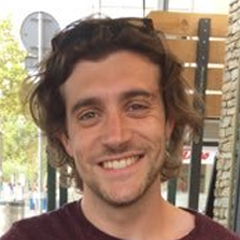
David Chapman
Royal Society, UK
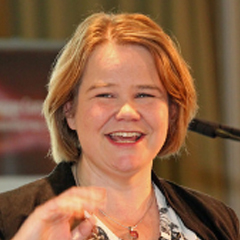
Sophie Duncan
National Coordinating Centre for Public Engagement, UK
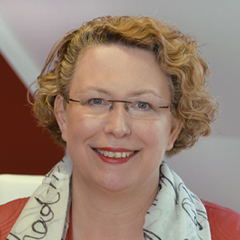
Annette Klinkert
European Science Engagement Association, Germany
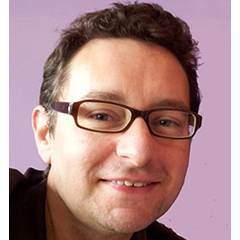
Kenneth Skeldon
Wellcome Genome Campus, UK
Course Speakers/Tutors
Cissi Askwall – V+A, Sweden
Jenni Chambers – UK Research and Innovation
Katherine Cooper – University of Reading, UK
Heather Doren – University of Dundee, UK
Helen Featherstone – University of Bath, UK
Becky Gilmore – Wellcome Genome Campus, UK
Steven Hill – Research England, UK
Rick Holliman – Open University, UK
Kinga Laszlone Bercsenyi – King’s College London, UK
Jon Rea – Nottingham City Council, UK
Tara Shears – University of Liverpool, UK
Suzanne Spicer – University of Manchester, UK
Pieter van Boheemen – Rathenau Instituut, The Netherlands
ACSC team
Laura Wyatt – Conference & Events Organiser
Treasa Creavin – Scientific Programme Manager
How to apply
Prerequisites
Applicants must be active researchers at postdoctoral level or above at a research institute or higher education institution. The course is open to researchers from all disciplines.
How to Apply
Applicants are required to complete a short online application. Places on this course are limited and will be awarded on merit.
Application deadline: 16 April 2019
Travel visas
Successful applicants will be provided with a support letter for their visa application, if required.
Please visit the following websites for further information on visiting the UK:
Cost
| Cost | Accommodation / meals | |
| *Course fee | £502 | This is a residential course and the fee includes all accommodation and meals. |
*The course fee is subsidised by Wellcome Genome Campus Advanced Courses and Scientific Conferences. Accommodation for 8 and 9 July is included in the fee.
Bursaries
We are grateful for the support of Wellcome, UKRI, the Royal Society and Wellcome Genome Campus Public Engagement for offering a number of bursary-assisted places subject to eligibility criteria described below. Please indicate your research funder in your application.
All applications for bursaries will be assessed on a competitive basis together with the strength of the Masterclass application generally. We encourage applicants to explore training and development funds within their institutions ahead of making an application for a bursary.
- Wellcome – Researchers receiving funding from Wellcome are strongly encouraged to explore the existing resources available within Wellcome Centre, ISSF or programme grants where relevant. A limited number of Wellcome bursaries is available and priority will be given to researchers without access to such resource.
- UKRI – Researchers receiving funding from a UK research council or employed by a UKRI funded research institute are first encouraged to explore training resource budgets within existing funds. A limited number of UKRI bursaries is available and priority will be given to researchers without access to such resource.
- Royal Society – A limited number of Royal Society bursaries is available to holders of the following Royal Society fellowships: University Research Fellowship, Dorothy Hodgkin Fellowship, Sir Henry Dale Fellowship, Newton International Fellowship and Industry Fellowship.
- Europe – A limited number of bursaries is available for researchers located in countries across Europe and outside of the UK and working on research projects supported by national funders or the European Commission.
In all applications for bursaries, the following will need to be provided:
- A justification letter from applicant
- A supporting letter from your institution/supervisor stating financial need
To apply for a bursary, please contact the event organiser.
Bursary deadline: 16 April 2019
Additional funding opportunities
Visit our support page for additional financial support currently available.
Extra accommodation
If you wish to book onsite accommodation either side of the course dates, please contact the Conference Centre directly.
Accommodation services phishing scam – please be vigilant. More information.
Testimonials
Feedback from the previous attendees:
“I found this course very useful but also very enjoyable. I liked the size of the group as it meant we were all able to participate. It was also a fantastic opportunity to meet people doing similar public engagement and hear about their experiences and share ideas”(participant on 2016 course)
“It was by far the best training course I’ve been on. It was meticulously organised, carefully thought out, and clearly structured, with a nice mixture of activities and talks. The range of subject matter covered was ideal, and especially impressive was the care taken by the leaders to keep tabs on how we, the delegates, were finding the course. The social side was also excellent – the course leaders created a friendly, unthreatening environment, which encouraged conversation and participation by everyone” (participant on 2015 course)
“Extensive cover of PE activities were discussed, lots of interactive sessions that helped me understand issues that were presented in the oral presentations, loads of useful sources for further info on PE activities were given” (participant on 2015 course)
“It was good to network and work with different background, especially the funders and well established PE professionals, to see things in perspective, and receive comments and encouragement” (participant on 2016 course)
